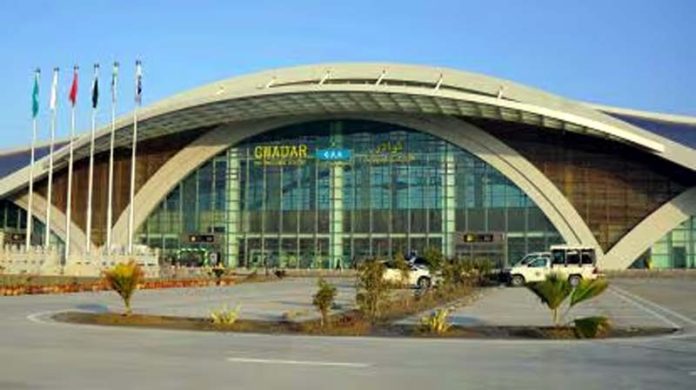Gwadar’s New Airport Faces Uncertainty and Local Discontent
The New Gwadar International Airport, Pakistan’s most expensive and modern airport, remains inactive since its completion in October 2024. With a capacity to handle 400,000 passengers annually, the airport, entirely funded by China at $240 million, has yet to serve any flights or passengers. This stark contrast between the modern infrastructure and the impoverished surroundings has raised questions about its purpose and when, or if, it will open for business.
A Project Driven by China’s Interests
Situated in Gwadar, a coastal city in the resource-rich and volatile Balochistan province, the airport is part of the larger China-Pakistan Economic Corridor (CPEC). This multibillion-dollar project, which aims to link China’s Xinjiang province to the Arabian Sea through Pakistan, is meant to enhance trade and infrastructure in the region. However, experts argue that the airport’s true function may not be to serve the local population but rather to cater to China’s geopolitical needs.
“This airport is not for Pakistan or Gwadar,” said Azeem Khalid, an expert on Pakistan-China relations. “It is for China, to give their citizens secure access to Gwadar and Balochistan.” The region, which holds strategic importance, has been central to China’s plans for economic expansion. Still, the lack of infrastructure and services in Gwadar, including electricity and clean water, makes the airport seem like an ill-suited investment for the city’s 90,000 residents.
Gwadar Struggles with Infrastructure and Basic Needs
Despite the promises of CPEC, life in Gwadar remains difficult. The city is not connected to Pakistan’s national electricity grid, and locals rely on neighboring Iran or solar power. Water shortages are also a persistent issue, exacerbated by both droughts and over-exploitation of local resources. These challenges suggest that a large-scale airport serving 400,000 passengers annually is not a priority for the community, whose basic needs are far from being met.
Local authorities claim that CPEC has created some 2,000 jobs, but there is little transparency on whether these positions are filled by local Baloch residents or people from other parts of Pakistan. The promise of jobs and development has yet to materialize in a way that the people of Gwadar can feel.
Military Presence Heightens Tensions Amid Balochistan’s Insurgency
Gwadar’s tense environment is further amplified by a heavy military presence. The region has been plagued by a decades-long insurgency fueled by Baloch separatists who accuse the Pakistani government and foreign investors, including China, of exploiting local resources without benefiting the people of Balochistan. In response, Pakistan has increased its military presence in the city, setting up numerous checkpoints, watchtowers, and barricades.
Locals express frustration over the rising militarization. “We used to enjoy all-night picnics in the mountains or rural areas, but now we’re constantly asked for identification,” said Khuda Bakhsh Hashim, a 76-year-old Gwadar native. The situation has left many residents feeling trapped and under constant surveillance.
The Lack of Tangible Benefits for Locals
Despite Gwadar’s potential as a trade hub, there is a growing sentiment among locals that they have seen few benefits from the presence of Chinese investment and the ongoing construction projects. The city has one domestic flight route to Karachi, Pakistan’s largest city, operating just three times a week. However, there are no flights to Quetta, Balochistan’s provincial capital, or Islamabad, the national capital, highlighting the limited connectivity of the region.
Since the beginning of the Baloch insurgency, which erupted over 50 years ago, the province has seen thousands of disappearances and claims of government crackdowns on activists. The arrival of Chinese workers, coupled with rising military activity, has only intensified fears of oppression and human rights violations in the region.
Uncertain Future for Gwadar and CPEC
While Gwadar remains a charming city, with beautiful beaches and hospitable locals, its future remains uncertain. The government and international stakeholders like China continue to push for the success of CPEC, but for many in Gwadar, it’s hard to see the benefits. As local residents like Hashim struggle to find hope, they hold onto the hope that CPEC will one day create opportunities for the younger generation. But as things stand, the promise of prosperity remains elusive for the people of Gwadar.
Follow Swadesi for more updates!




